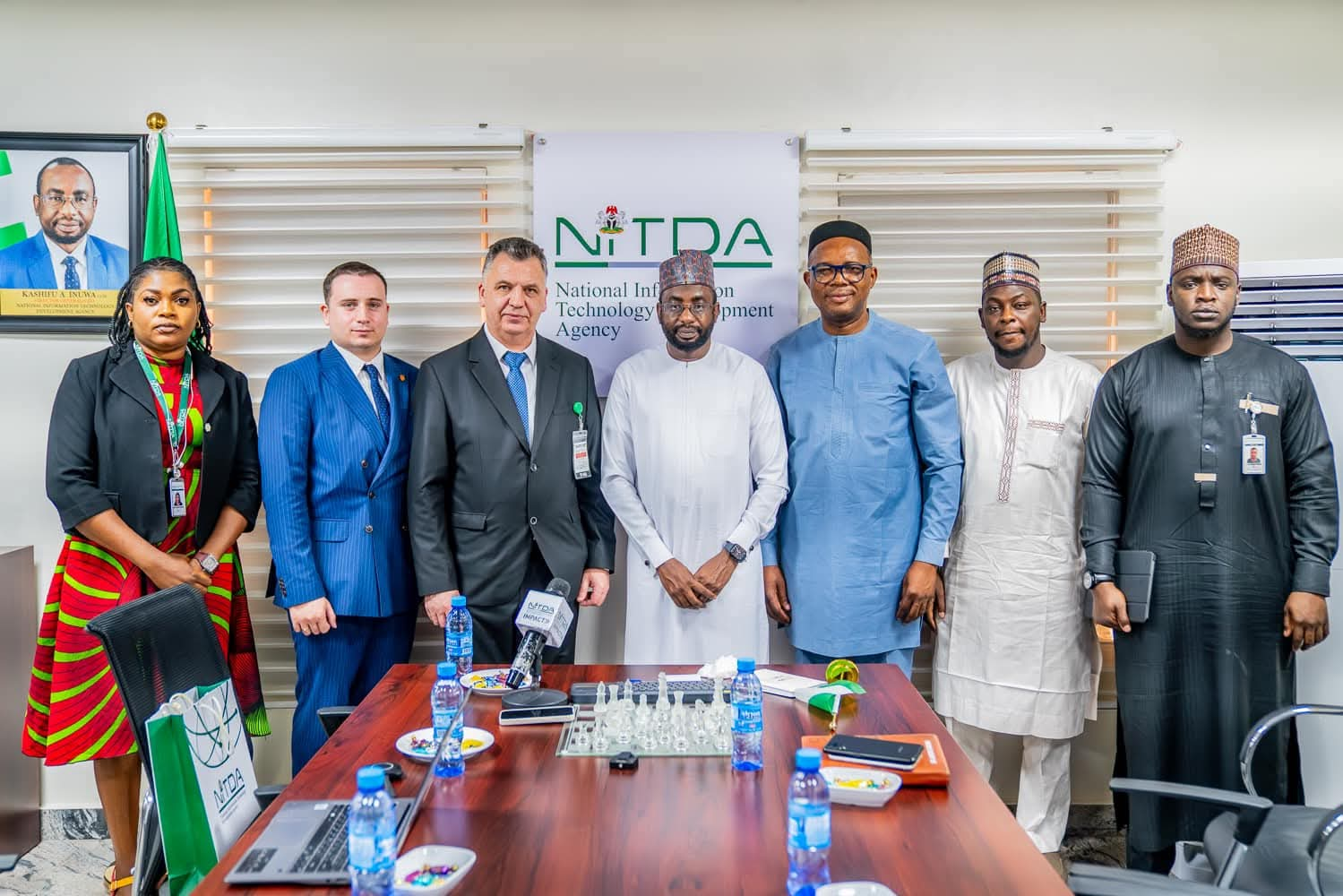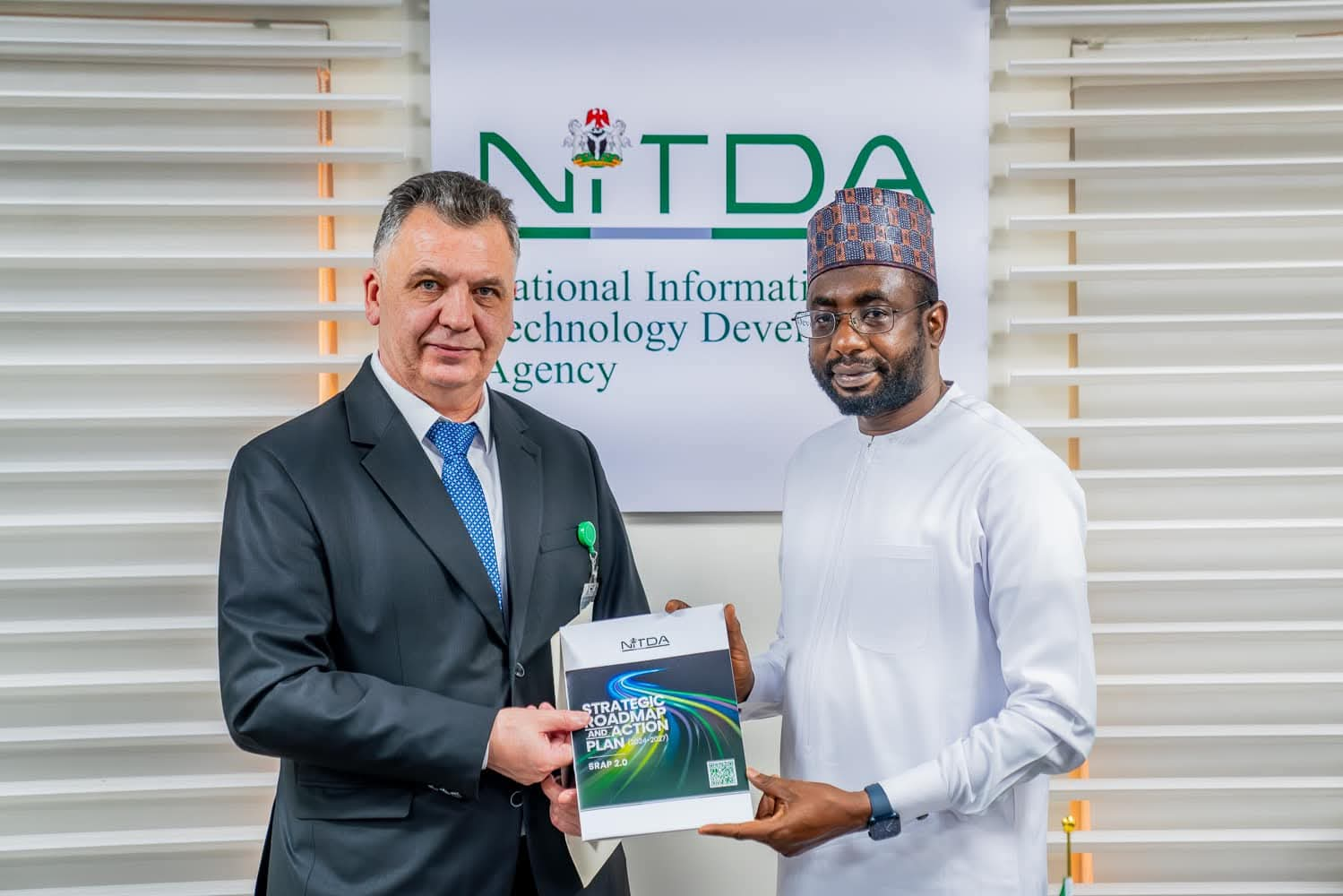In a renewed push to enhance governance and service delivery, the National Information Technology Development Agency (NITDA) has reaffirmed its commitment to digital transformation, aligning with the federal government’s Renewed Hope Agenda.

The Director-General of NITDA, Kashifu Inuwa CCIE, disclosed this during a meeting with a delegation from the Ukrainian Embassy in Nigeria, led by Ambassador Ivan Kholostenko, at the agency’s corporate headquarters in Abuja. The discussions focused on potential collaborations to enhance productivity, transparency, and trust in government processes.
Inuwa noted that the agency is intensifying efforts to establish a one-stop-shop portal for government services, in line with President Bola Ahmed Tinubu’s directive to digitize 75% of government services by 2027. He highlighted ongoing research into successful digital governance models in countries like the UK and Kenya, emphasizing the need to develop a framework tailored to Nigeria’s needs.
“While such models are not entirely transferable between nations, we can learn from their experiences to build our own,” Inuwa stated. He also stressed the importance of introducing legal frameworks to support the initiative, noting that other countries provide government services through Application Programming Interfaces (APIs) or dedicated portals backed by law.
To ensure alignment with global digital governance standards, Inuwa revealed that NITDA is engaging with the International Telecommunication Union (ITU), leveraging international expertise to refine Nigeria’s digital transformation strategy.
Ambassador Kholostenko, in his remarks, shared Ukraine’s experience with its Diia digital platform, an ecosystem that integrates state registers and databases to deliver all government services in one place. He expressed Ukraine’s willingness to support Nigeria in developing a similar system to streamline governance, reduce bureaucracy, and curb corruption.
“We are interested in expanding this initiative to help other countries build digital governance systems, minimize human-to-human interaction, and enhance efficiency,” Kholostenko stated.
The proposed digital transformation is expected to improve Nigeria’s public service experience, making government operations smarter, more seamless, and citizen-friendly.





